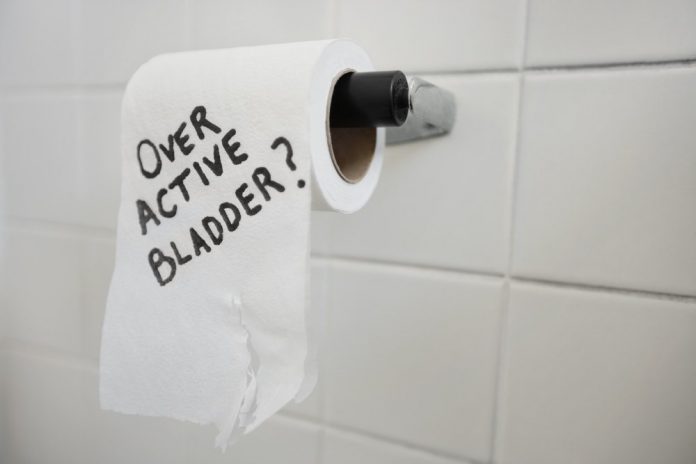
How often do you think about your bladder health? If you’re among the estimated 33 million people in the US who experience an overactive bladder, you probably think about it a lot. If you want to prevent an irritated or overactive bladder, bladder stones, or other issues affecting bladder function, stick around for a few minutes and discover what you should know about bladder health and overactive bladder.
What is an overactive bladder?
Let’s get one thing straight at the very beginning: an overactive bladder is NOT a normal part of getting older. It is a medical condition that can be managed regardless of age.
An overactive bladder squeezes urine out of the body at the wrong times. A diagnosis of an overactive bladder typically is considered if you meet two of the three following symptoms:
- You pee eight or more times daily or two more times at night
- You leak urine after a sudden, urgent need to pee
- You have a sudden, strong need to pee immediately
These symptoms may also indicate urinary incontinence (loss of bladder control).
Read about tips to better bladder health in just a few weeks
UTIs and bladder stones
Did you know it’s impossible to distinguish between a urinary tract infection (UTI) and a bladder infection? That’s because symptoms of the two conditions can overlap. Urinary tract infections can impact any part of the urinary tract, including the urethra, bladder, ureters, and sometimes the kidneys. A bladder infection is a type of urinary tract infection that affects the bladder only, and it is the most common type of UTI.
Symptoms of a urinary tract infection that most people experience include:
- Burning sensation when urinating
- Bladder pain that may feel like a persistent need to pee
- Urinating only a few drops
- Leaking urine
- Pelvic or stomach pain
- Foul-smelling or cloudy urine
Bladder stones are masses that develop when the minerals in concentrated urine crystallize. They typically form when you don’t empty your bladder. In men, they can form as a consequence of an enlarged prostate. To help prevent bladder stones, drink lots of water (60 to 100 ounces daily) and empty your bladder regularly…don’t hold it!
Read about urinary incontinence: the causes, effects, and natural remedies
Bladder incontinence and food allergy or intolerance
Is your child wetting the bed? For decades, it’s been known that bladder incontinence and food allergy or intolerance are connected, yet many parents don’t hear about this cause. James C. Breneman, MD, stated in his book Basics of Food Allergy, "Control of food allergy is effective in curbing bedwetting in four out of five patients.” Children who wet their beds may have an undiagnosed food sensitivity or allergy (e.g., gluten, dairy, eggs, and soy) contributing to their nighttime problem.
Dr. Jacob Sagie, an expert on childhood bedwetting, also has a say, noting that in some cases, “bedwetting resulting from a reaction to food will be due to a high frequency of food sensitivity rather than being allergic to certain foods.” This may be a contributing factor if your child is wetting the bed and has not been checked for food allergies or sensitivities.
Foods good for bladder health
According to the American Urological Association, there are 10 foods that are good for bladder health. These foods are more likely to soothe your bladder than irritate it.
- Bananas
- Bread (whole grain; gluten-free when appropriate)
- Cranberries, both whole and as a juice, may help with urinary tract health
- Eggs
- Green beans
- Lean proteins include chicken, turkey, fish, and low-fat beef. Bake, broil, or steam
- Nuts
- Pears
- Potatoes, including white and sweet
- Whole grains, including amaranth, barley, farro, millet, oats, quinoa, and rice. Gluten-free when appropriate.
- Winter squash, such as acorn, butternut, Hubbard, and spaghetti
You may also include soothing beverages such as flavored water, coconut water, and non-citrus juices like apple, cranberry, or grape.
Foods bad for bladder health
Here are some foods and beverages you should significantly limit or avoid for better bladder health.
- Alcohol: Drinking alcohol makes you urinate more because it’s a diuretic. It also can irritate the lining of the urinary tract.
- Artificial flavorings and preservatives: These can irritate the urinary tract and also promote overactive bladder
- Artificial sweeteners: The artificial sweeteners found in soft drinks appear to negatively impact bladder health in a few animal studies. In people with interstitial cystitis or chronic bladder inflammation, research shows that artificial sweeteners can cause bladder irritation. The natural sweetener stevia, however, does not seem to irritate.
- Caffeine: The most significant contributor here is coffee, but tea, chocolate, and energy drinks also contain this stimulant. Coffee can stimulate the smooth muscle in your bladder and contribute to an overactive bladder.
- Citrus: Lemons, limes, pineapple, oranges, and grapefruit are all acidic foods and juices that can irritate the bladder and urinary tract.
- Soft drinks: These beverages can contain two of the big offenders: caffeine and carbonation. The results of one large study found that carbonated beverages were associated with urinary incontinence among women.
- Tomatoes and tomato-based foods, such as tomato sauce and chili
Bottom line
The role of diet in managing overall bladder health, including overactive bladder, is often overlooked. Making minor changes to your diet and doing Kegel exercises to strengthen your pelvic floor muscles to control better urinary flow are wise steps everyone can take toward better bladder health.
Utiva Health has an app for tracking urinary tract health and your symptoms. Check it out here. They also have a free eBook, "The Ultimate UTI Guide," to help you improve your bladder health and other tips.




